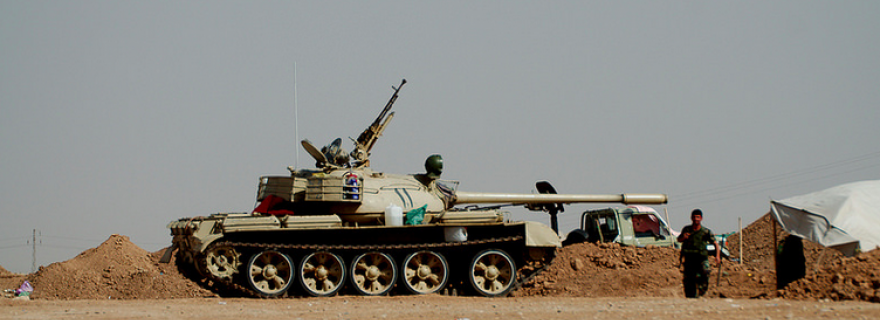“We are coming, Nineveh”
The recently commenced battle for Mosul raises the issue what military successes against ISIS could mean in terms of threat to the West.
Earlier this month, the battle of Mosul began. A coalition including Iraqi, Kurdish and militia forces – supported by various foreign entities – started to push towards the city. Numerous villages and town in the surroundings have been captured in the process. This operation, also dubbed ‘We are coming, Nineveh’, follows upon Iraqi prime minister al-Abadi’s vow in late 2015 to free the county from ISIS in 2016, adding: “We are coming to liberate Mosul, which will be the fatal blow to Daesh”. Although a bold statement, recent events gave his words much added weight. With the coalition closing the gaps around Mosul, the notion that ISIS might lose its largest city in Iraq raised the question what this might mean in terms of possible blowback to the West.
Many ISIS fighters might die in the siege of Mosul. Some likely even want to; to become a martyr. Others might want to leave the caliphate as sustained ISIS losses in terms of territory and manpower increase the pressure on its fighters. Literature on disengagement from terrorism shows us that the development of such negative sentiments resulting from setbacks that are associated with membership can be an important psychological factor stimulating people to leave the organisation. Simply put; major successes against ISIS can cause its members to become disillusioned and more likely to leave. Many of them indeed might want to travel or return to the West.
Still, some might be deterred by the signs of past occasion where ISIS executed deserters, as well as by facing possible prosecution in the West. Those who do take the step to leave ISIS and succeed in that regard also face obstacles. ISIS no longer holds territory at the Turkish-Syrian border, making leaving more complex than before. Leaving ISIS requires passing through enemy territory, and deserters might get stuck in transit. For instance, it was recently revealed that approximately 300 ISIS defectors are held in an internment camp of the rebel group Jaysh al-Tahrir. Among them a Dutch jihadist who stated to hope to return to the Netherlands.
Others might succeed in traveling to the West. Recently, a European Commissioner stated that a mass-exodus of ISIS fighters to Europe as a result of the Mosul offensive is however unlikely. Yet according to FBI director Comey, ongoing successes against ISIS can cause just that, as he stated to expect an unprecedented ‘terrorist diaspora' to Western Europe and the United States in the upcoming years as ISIS gets pushed back. How many will return when the pressure on the caliphate continues to increase remains to be seen. Of those that do, as shown by returning fighters in previous conflicts, some might integrate peacefully while others might become engaged in terrorist activity. With regards to the latter, it is important to keep in mind that leaving ISIS behind (disengagement) does not also has to mean leaving the extremist ideology behind (deradicalisation). Relatedly, there might be those who leave ISIS territory but who are not disengaged at all; who leave the caliphate to continue ISIS’ jihad elsewhere.
Capturing Mosul and other major ISIS-holdings are important steps in the campaign against ISIS. Such successes have however the potential to increase the number (former) ISIS members that travel to the West – although this is by no means the only possible scenario as shown above. Given that the threat that foreign fighters pose to the West lies mainly in their return, successes against ISIS can therefore potentially increase the risk that Western countries face. Even more so as not only Western individuals might return, but also non-Western ISIS fighters might decide to leave the caliphate and to travel to the West. As such, successes against ISIS in Syria and Iraq constitute no reason for Western authorities to sit back.


